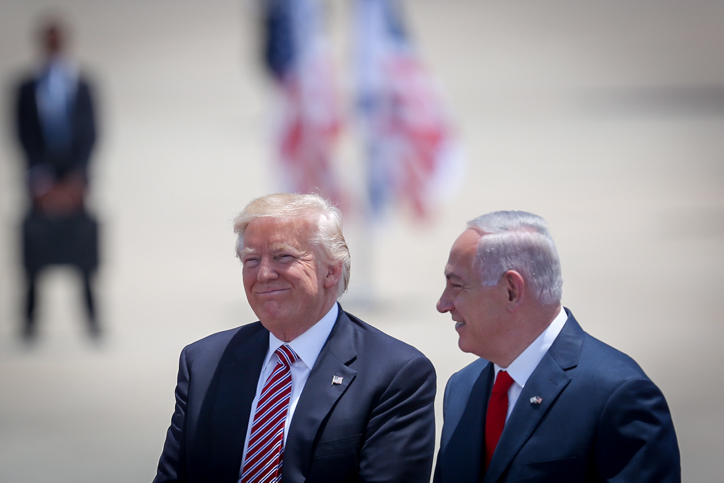Netanyahu’s goodwill ‘gestures’ to the Palestinians are nothing more than a way to appease President Trump on his visit. So why is the media playing along?

In the run-up to President Trump’s visit to the region, the Israeli government adopted a number of modest goodwill gestures vis-a-vis Palestinians in the West Bank, which the Israeli media immediately dubbed “trust-building” measures. Local newspapers reported that none of the steps taken had anything to do with security, but rather revolved around civilian issues. This included making sure the Allenby Bridge — which connects the West Bank to Jordan — stayed open for longer; easing construction in Area C; and expanding the Tarkumiya industrial zone. As expected, ministers from the right-wing Jewish Home party opposed the measures.
Why do we need a visit from an American president for these measures? After all, Netanyahu believes in “economic peace,” and the Right keeps promising us that Palestinians under occupation are far better off than anywhere else in the Arab world, and surely better than under a Palestinian state, if and when it is established. The Left has always argued that politics and the economy are intertwined, yet the Right pledged to undo this knot. And anyway, if Israel intends to remain in some or most of the West Bank, what is more logical than developing those territories?
It is no coincidence that not a single political reporter has raised these naive questions before the prime minister. We all know that these gestures are not intended for the Palestinians, but rather for Trump. The Right has no interest in economic development in the occupied territories. “Economic peace” is a farce, and all of us — the media and the political system — take part in it.
The last thing Israel wants is a strong, sustainable Palestinian middle class, since that same middle class will immediately demand political rights. The occupation works best in the face of a poor, disintegrated society, which depends on work permits and a constant flow of money from the Palestinian Authority. And in order to get a work permit from Israel, a Palestinian needs to be uninvolved in all political activities, and is sometimes even asked to spy on his neighbors or family members. Collaborators are an essential part of the system; a viable economy, like freedom of movement, stands in contradiction to the occupation.
Those same “gestures,” similar to work permits, are cards that Israel holds and uses for PR purposes vis-a-vis the world; for propaganda vis-a-vis its citizens; and especially vis-a-vis Palestinians when it wants to force them into political obedience. Once we stop talking about “gestures” and start talking about rights, we will know something has changed.
This post was originally published in Hebrew on Local Call.


